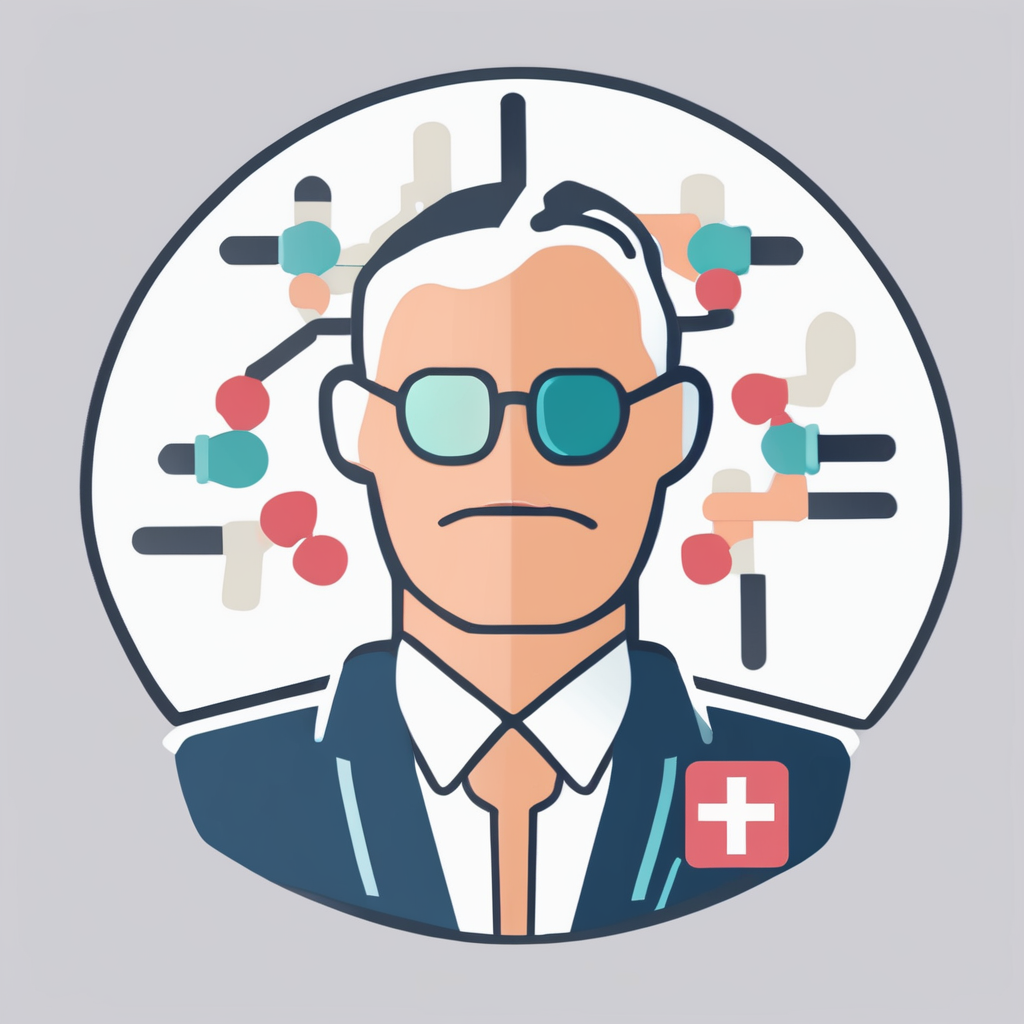Overview of Recent Innovations in Elderly Care in the UK
Recent innovations in elderly care UK have significantly reshaped both the experience and delivery of care. The latest elderly care trends UK emphasize integrating elderly care technology UK such as remote monitoring devices and AI-powered health assistants. These tools enable personalized care plans, improve safety, and reduce hospital admissions.
Innovation is crucial for enhancing elderly well-being and healthcare efficiency. Technologies like fall detectors, wearable health trackers, and medication reminders empower older adults to maintain independence while providing caregivers with real-time insights. These advances also relieve pressure on healthcare professionals by streamlining routine tasks and enabling earlier intervention.
Also to discover : How can seniors in the UK find support for managing chronic conditions?
Several organisations and studies underpin these developments. Research initiatives funded by government bodies and private sectors actively assess how emerging technologies can best address challenges such as social isolation and chronic condition management. Collaborative efforts between tech firms, healthcare providers, and charities are driving forward solutions tailored to the UK’s ageing population.
By embracing these innovations, the UK’s elderly care sector is moving toward more responsive, efficient, and compassionate services that benefit both individuals and the wider healthcare system.
Also to discover : What Are the Most Effective Exercises for Seniors to Maintain Health?
Digital Health Tools and Telemedicine
Digital health tools have transformed healthcare for the elderly in the UK. Telehealth for seniors is increasingly popular, offering remote consultations that save travel time and reduce exposure to health risks. Platforms designed specifically for the elderly provide easy-to-use interfaces, making digital health elderly UK accessible even for those less familiar with technology.
Remote healthcare elderly UK incorporates wearable devices that monitor chronic conditions like diabetes and heart disease. These devices send real-time data to healthcare providers, enabling timely interventions and personalised care plans. Patients feel more secure knowing they are continuously monitored, improving adherence to treatment.
The positive impact of these tools is clear: increased access to care, especially in rural areas, and enhanced patient safety. Telemedicine reduces hospital visits while maintaining quality care, empowering elderly patients to manage their health proactively. By integrating telehealth and remote monitoring, the UK is paving the way for a more inclusive, efficient healthcare system that addresses the unique needs of its ageing population.
Smart Home Adaptations for Independent Living
Smart home elderly UK solutions are transforming how seniors maintain independence. Assistive home technology incorporates the latest smart sensors and automation tools to support daily activities, such as movement monitoring and lighting control. These technologies reduce reliance on caregivers and add layers of safety within familiar environments.
Voice-activated systems have become essential for seniors, allowing easy control of appliances, communication devices, and security without complex interfaces. Emergency alert devices integrated into smart homes provide immediate assistance when needed, key for preventing prolonged incidents.
Recent projects in the UK have demonstrated measurable improvements in elderly residents’ quality of life. For instance, automated medication reminders coupled with sensor-triggered alerts ensure proper health management without constant supervision. Research highlights how these technologies foster confidence and reduce anxiety around living alone.
By embracing smart home adaptations, independent living seniors UK can enjoy enhanced autonomy and comfort with ongoing support tailored to their needs. This blend of innovation and empathy is redefining elderly care within the home environment.
Remote Monitoring Solutions for Elderly Safety
Remote monitoring elderly UK solutions incorporate advanced fall detection and activity tracking technologies specifically designed to protect seniors. These systems use sensors worn on the body or installed around the home to detect unusual movements or falls, alerting caregivers instantly. Fall detection is critical, as immediate response significantly reduces the risks associated with prolonged immobility after accidents.
Safety tech seniors UK is evolving rapidly to include integration with emergency response services and family notification systems. When an incident occurs, alerts are automatically sent to emergency responders and designated relatives, ensuring prompt action. This interconnected approach not only improves safety but also offers peace of mind to families living apart from elderly relatives.
In UK care homes, remote monitoring elderly UK solutions are being evaluated for effectiveness and user acceptance. Studies highlight improvements in response times and a reduction in serious injury cases. Care facilities adopting these technologies report enhanced resident safety and better resource allocation.
The combination of fall detection, real-time alerts, and seamless communication forms a robust safety net for seniors, making remote monitoring a vital component in modern elderly care.
Introduction of Care Robots and AI Assistance
In the UK, care robots elderly populations increasingly benefit from advanced AI in elderly care. These technologies encompass a variety of robotic systems designed to support seniors and improve their quality of life. Among the most common are companion robots, which provide social interaction and emotional support, addressing loneliness—a significant concern for many elderly individuals.
Robotic devices also extend to practical applications such as medication reminders. These AI-powered tools ensure seniors take their medicine on time, reducing risks associated with missed or incorrect dosages. Additionally, mobility aids equipped with intelligent sensors assist users in moving around safely, preventing falls and improving independence.
Recent pilot programmes across UK care settings demonstrate promising results. For example, trials involving companion robots have shown increased social engagement among residents in care homes. AI-driven monitoring systems enable real-time health tracking, allowing caregivers to intervene earlier in emergencies.
By blending robotic assistance seniors UK with human care, these innovations offer tailored support that adapts to individual needs. This intersection of technology and empathy highlights the potential to transform elderly care, making it safer, more efficient, and more compassionate.
Policy Changes and Innovative Care Models
Recent elderly care policy UK reforms have increasingly emphasized integrating services to improve outcomes for older adults. These changes focus on breaking down traditional silos by promoting integrated care models that unite health, social, and community services. This approach supports a seamless experience tailored to the complex needs of elderly individuals.
Key innovations include forming partnerships between the NHS, local authorities, and voluntary organizations, fostering collaboration through multi-disciplinary teams. These teams combine expertise from healthcare professionals, social workers, and carers, ensuring holistic assessments and personalized care plans. Community-based solutions such as home visits and telehealth technologies play a significant role, allowing elderly patients to receive support in familiar environments that encourage independence.
The impact of these models is substantial. Elderly welfare benefits from more coordinated support, reducing hospital admissions and delays in discharge. Caregivers gain clearer communication channels and shared responsibilities, improving job satisfaction and reducing burnout. Furthermore, service delivery efficiency is enhanced by minimizing duplication and enabling proactive management of chronic conditions. This paradigm shift marks a critical step toward sustainable, patient-centered elderly care in the UK.
Impact of Innovations on Well-being and Healthcare Delivery
Innovations in elderly care have notably enhanced elderly well-being in the UK, promoting greater autonomy among seniors. Modern technologies and innovative care models have contributed to improved health outcomes, allowing many older adults to manage chronic conditions more effectively and delay the need for intensive care. For example, telehealth services enable continuous monitoring, reducing hospital admissions and supporting independent living.
The impact of innovation on elderly care extends to caregivers and healthcare providers. These advancements alleviate some workload pressures by automating routine tasks and improving communication channels between patients and professionals. However, challenges remain, including ensuring equitable access to technology and providing adequate training to both seniors and caregivers.
Evidence from recent pilot studies and stakeholder feedback highlights mixed yet generally positive outcomes for seniors in the UK. Many report enhanced quality of life and satisfaction with innovative interventions, while concerns about usability and digital literacy persist. Addressing these issues is essential to maximize benefits and ensure innovations translate into real-world well-being improvements. Thus, evaluating and adapting innovations continuously will support more inclusive and effective elderly care solutions.

